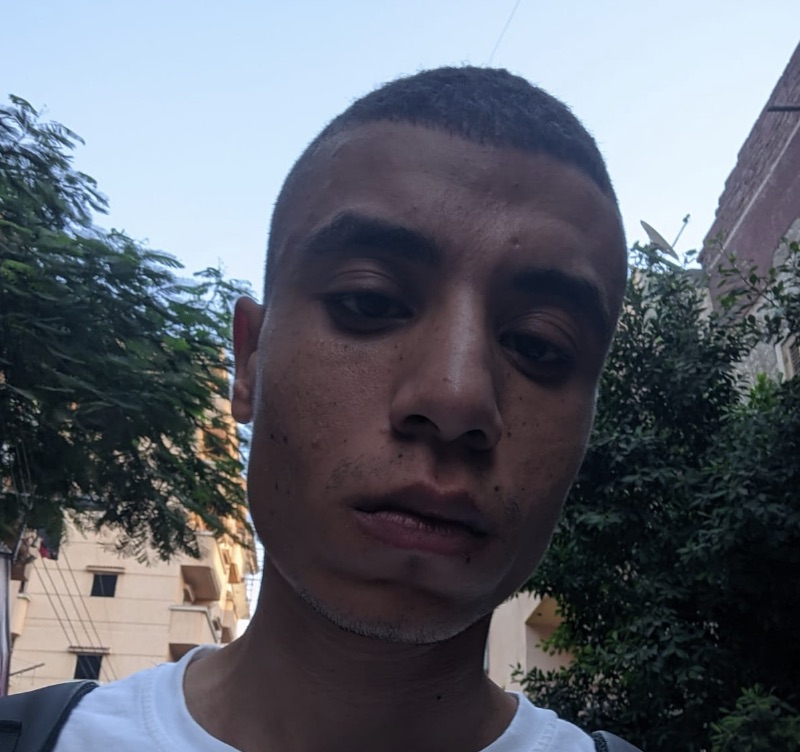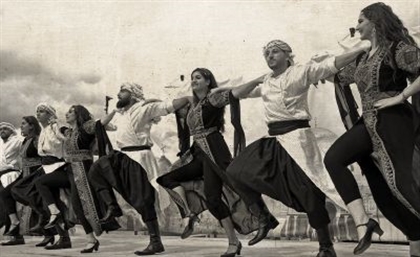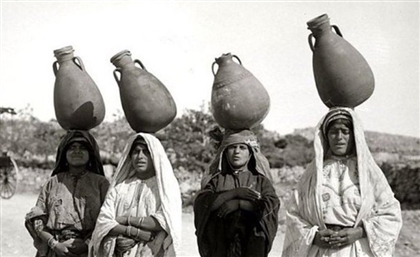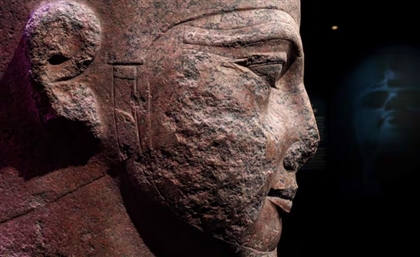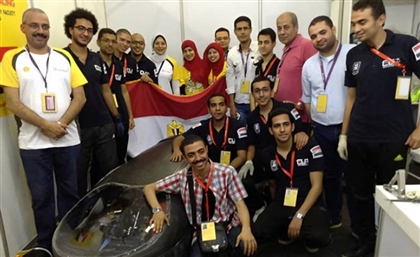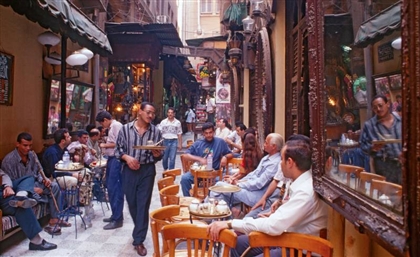Muqata'a - The Godfather of Palestinian Underground Hip Hop
SceneNoise contributor Omar Ghonem takes a deep dive into the Palestinian rapper’s influential work, and his role in catalyzing Ramallah’s hip-hop scene.
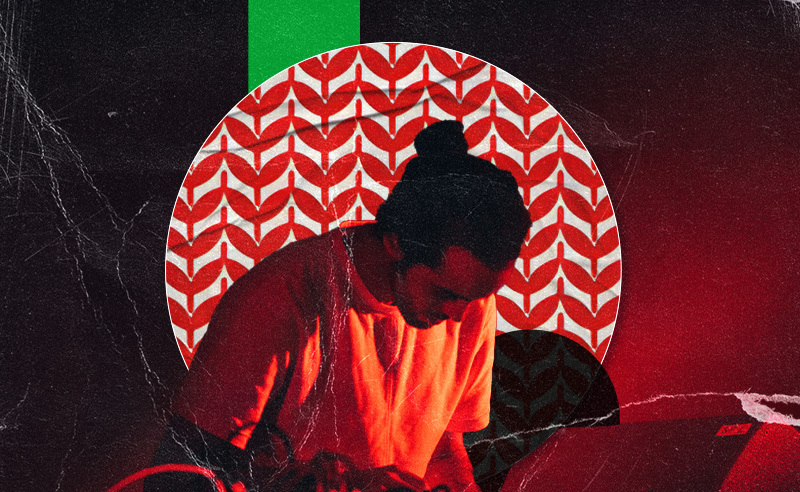
His name is a symbolic embodiment of the messages that he endeavors to convey: a call to boycott, disrupt, and interfere, to be a “glitch in the system” in his own words. Muqata'a is a true pioneer and is widely acknowledged as a ‘Godfather’ of Palestinian underground hip hop.
Muqata'a's family were Palestinian refugees that moved between Cyprus and Jordan before coming back to Ramallah. From a young age, he played the piano, and his older brother played the guitar. His brother introduced him to genres like Trip Hop, Downtempo, and Jazz, which later found a way into his music. His introduction to Hip Hop came through the likes of Wu-Tang Clan, RZA, and Gravediggaz. He only started making music at the age of 12 using basic software on his computer. Later, he was influenced by Mos Def and Talib Kweli from Black Star and DMX. With so little to almost no Arabic hip hop at the time, Muqata'a had to formulate a writing style of his own, which gave him his authentic method and technique.
-20cb6371-1fde-4bb7-9c31-f28a777a8555.jpg)
He wrote his first song in Arabic, ‘Mamno' Al Tagawol’, after the occupation forces invaded the West Bank in 2002 and imposed a curfew. Muqata'a said in an interview in 2014: “Ramallah was full of tanks and armored vehicles, and there was shelling and clashes. I was stuck at home and kept myself busy making music. I was extremely upset, as my neighbors had been locked up, arrested, and shot. It was a terrifying time. Then I felt that I had to write in Arabic. It is the language that speaks to the place I am in and the events I am experiencing. I felt that I had to write in Arabic as a form of respect for the people who suffered around me. I had to speak my language, our language."
-6440b3a6-c61a-492d-a4bf-2a6ea5cbd787.jpg)
Later in the same year, Muqata’a met with fellow rapper ‘3asefah’ and then, joined by his brother as ‘Aswatt’, formed the renowned Ramallah Underground collective. Their visionary initiative aimed to establish a dynamic platform for artists in Ramallah, transcending the conventional boundaries of a mere band or collective. They created a website bearing the same name and any artists from Ramallah can showcase their work on. However they were the only artists uploading their work on it.
The group started by independently releasing singles, a slow beginning that soon garnered attention. As offers to perform in small gigs in Ramallah poured in, a movement was taking shape, casting a profound influence on and energizing the local hip-hop scene in Ramallah. They served as genuine representatives of their community, using their music as a medium to communicate and resonate with the people. This momentum propelled them beyond local borders, leading to performances in various cities worldwide—from Cairo to Vienna, Amsterdam, and Melbourne. The group laid the foundation for the Palestinian hip-hop scene, a legacy that persisted until their eventual break-up in 2009.
Muqata'a went on his solo journey, and started releasing singles under his own name. In the midst of the Arab Spring in 2011, he started working on his full-length debut album, 'Hayawan Nateq', which was later released in 2013. The trajectory of Muqata'a's solo career can be divided into two distinctive phases: the era preceding and succeeding the release of 'Hayawan Nateq'. The album was a complete solo effort—self-released, written, performed, and engineered by Muqata'a. It was a lot different from his collaborative work with Ramallah Underground, much more experimental in terms of sound and sonic elements; Muqata'a's sample-based production incorporated field recordings, such as Israeli military checkpoints, and classic Arabic music samples.
In an interview with the Guardian in 2018, he said, “I sample classical Arabic music in my records. When our land is being taken away, our culture is muted. So it’s a way to try and disrupt that—being a glitch in the system is very important. When your heritage is being attacked by the state, you have to find ways of being remembered, so I sample a lot. A lot of the Arabic music or old records in my grandparents’ homes in Jaffa and Safed, for example, were taken when their house was confiscated.” With Hayawan Nateq, he curated a cohesive body of work extending from the album cover to the track titles. His complex writing style and techniques, along with his politically charged lyrics and thought-provoking bars, do not provide an easy listening experience. However, the more you dig deeper into his words and samples, a new layer is revealed, showcasing the depth of his artistic vision.
Following the release of ‘Hayawan Nateq’, Muqata'a took off on a transformative journey, steering away from the conventional realms of hip-hop towards surrealism and abstraction. Embracing a deconstructive musical approach, he dismantled rhythms and melodies into fractions, skillfully repackaging them into synthetic tones and glitch-infused, static noise cuts. Muqata'a's subsequent album, ‘Dabt Al Ghubar’, released under the independent record label Third Type Tapes, marked his radical departure towards experimentalism. Diving into abstraction, he incorporates these electronic and trip-hop elements, adapting them into vibrant and noisy hip-hop textures. ‘Dabt Al Ghubar’ cannot be defined as a rap album, but more of a sonic experiment where he blurs the lines between electronic, trip-hop and hip-hop.
In the same year, Muqata’a continued his sonic exploration with the release of ‘La Lisan Lah’, pushing the boundaries even further. This album delved into his new territory by seamlessly weaving Palestinian traditional music snippets into the fabric of heavy dub and distorted arpeggios. Furthermore, with albums like ‘Inkankunt’ and ‘Kamel Manqoos’, Muqata’a strays further from hip-hop and paints these abstract concepts through his compositional canvas, toying with sonics and noise, deconstructing hip-hop to its very bits, and wrapping it in waves of eerie and glitchy soundscapes.
Muqata’a continued to collaborate on tracks with the current generation of artists from Ramallah like Shabjdeed, Dakn, and Julmud. Furthermore, he played a role in establishing the performance group 'Tashweesh', with Basel Abbas and Rouanne Abu Rahmeh - an exploration of the collision between sound and video, field recordings, archive material, vocals, breaks and soundscapes.
Muqata’a established himself as a prodigious writer and poet, masterfully crafting sonic landscapes. His recent works, while not tailored for mainstream audiences, audaciously push past the confines of traditional music genres. Early in his career, he enthralled with his potent rapping, weaving complex rhymes and delivering messages with conviction. Muqata’a encourages reflection, deftly challenging beliefs without resorting to orientalism, thanks to his lyrical prowess and unique production techniques.

Rather than adapting to Western perceptions of Arabic music, Muqata’a stands out for his authenticity and innovative spirit, rarely seen among his peers. He boldly redefines music as an instrument of resistance, breaking free from established norms. As his career progresses, marked by a shift towards minimalism and abstraction, Muqata’a remains true to his heritage. He skillfully blends traditional Palestinian and Arabic influences with his rich, textured soundscapes.
- Previous Article UN Team Elects Egypt to Oversee Treaty Preventing Space Arms Race
- Next Article A Walk Through Downtown Cairo’s Timeless Architecture



